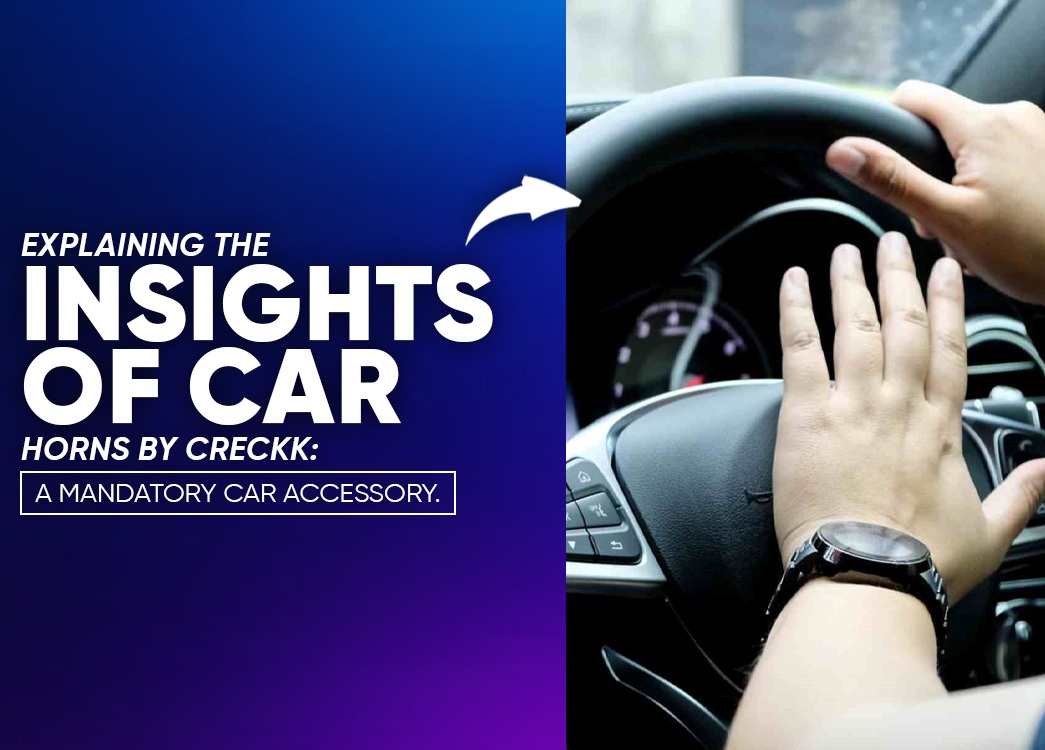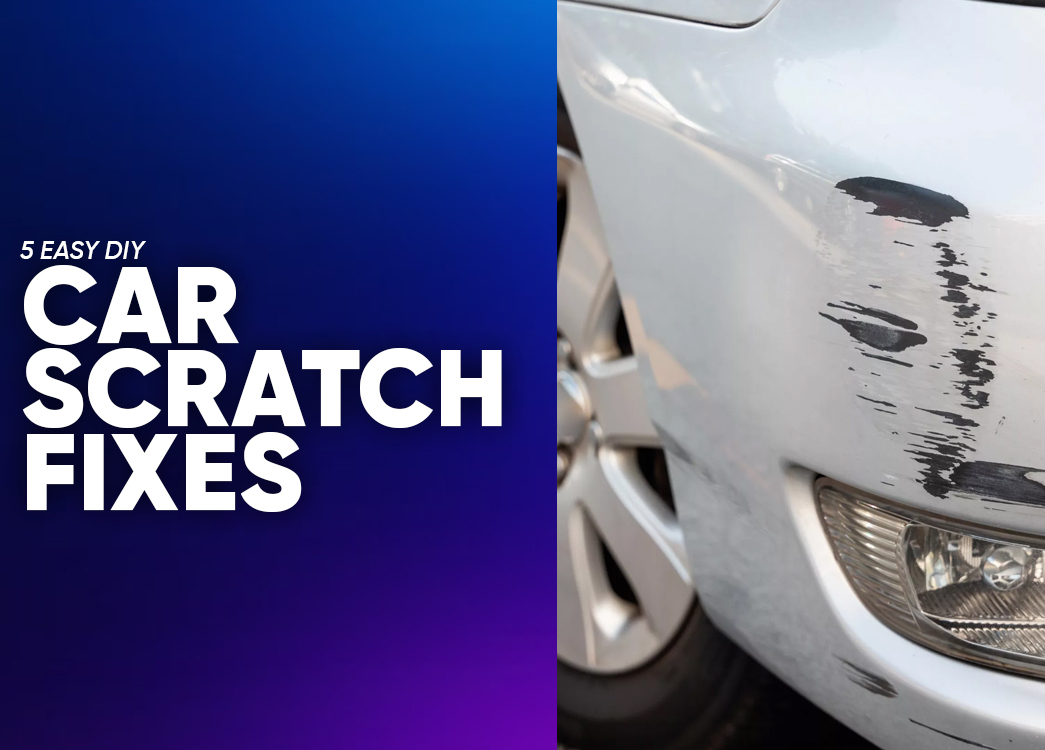
By creckk On 11-10-2025 at 12:39 pm
Everything You Need to Know About Car Horns in India: Types, Rules, Maintenance & More
Introduction: Why Car Horns Are Important in Indian Roads
In India’s traffic-heavy roads, the car horn is more than just a noise-maker. It helps communicate with other road users, warn of danger, and prevent accidents. However, with growing awareness around noise pollution and road safety, understanding how and when to use your car horn responsibly has become more important than ever. This blog covers all aspects of car horns including their types, functioning, legal norms, safety use, and more, tailored for Indian driving conditions.
What is a Car Horn and Why Is It Used?
A car horn is a sound-producing device fitted in all vehicles from bikes to buses and even ships. Located near the front of the vehicle and activated from the steering wheel or handlebar, it is essential for road communication and safety. In India, with unpredictable driving patterns and busy traffic, the horn plays a major role in preventing accidents and alerting pedestrians and other drivers.
How Does a Car Horn Work?
Most car horns operate on electromagnetic principles. When you press the horn button, an electrical signal activates an electromagnet which moves a diaphragm rapidly. This vibration creates sound waves that are amplified through a trumpet-like outlet. The key components include:
- Diaphragm that vibrates
- Electromagnetic coil
- Metal contacts
This repeated motion produces the familiar honking sound. The tone and volume depend on the horn’s design and material.
Types of Car Horns Used in Indian Vehicles
| Type of Horn | Description | Commonly Found In |
|---|---|---|
| Electric Horns | Most commonly used; produces sharp, high-pitched tone using electrical vibration | Cars, Bikes, Scooters |
| Air Horns | Uses compressed air to create loud sound; suitable for long-distance warnings | Buses, Trucks |
| Musical/Custom Horns | Creates unique tones; often used for style but not legal in India | Privately modified cars (not allowed under law) |
Sound Level and Frequency of Car Horns

Sound is measured in decibels (dB). Indian authorities recommend horn sound levels between 93 to 112 dB. Excessive levels can lead to fines and health issues.
Frequency is also crucial. High-frequency horns are effective in urban traffic as they cut through background noise. Low-frequency horns are used in foggy or long-range conditions.
Legal Rules for Car Horns in India
Car horn use is regulated under Rule 119 of the Central Motor Vehicle Rules. The main aim is to reduce noise pollution while ensuring safety. Key legal rules include:
- Only single-tone horns are allowed.
- Pressure horns and multi-tone horns are banned.
- Honking in silent zones (like near schools or hospitals) is strictly prohibited.
- Honking must be done only when necessary, not for impatience or frustration.
When Should You Use the Car Horn in India?
Honking is not meant for venting frustration. It should be used only in the following scenarios:
- Alerting a vehicle in your blind spot
- Preventing a potential accident
- Warning pedestrians or cyclists who haven’t noticed your vehicle
- Signaling at blind turns or intersections
Excessive or unnecessary honking can result in fines and irritate other road users.
Electric Horns vs Compressed Air Horns: A Comparison
| Feature | Electric Horns | Compressed Air Horns |
|---|---|---|
| Source | Electricity | Compressed Air |
| Sound Level | Moderate to High | Very Loud |
| Size | Compact | Bulky |
| Common In | Cars, Bikes | Buses, Trucks |
| Cost | Lower | Higher |
Importance of Horn Frequency and Vibration
High-frequency horns are better for city driving because they can be heard clearly over ambient noise. The vibrating diaphragm ensures a consistent sound that can travel longer distances, improving safety in high-traffic areas.
Car Horn Safety and Honking Etiquette in India
The horn should be used as a tool for safety not as a weapon for expressing frustration. Following proper honking etiquette helps reduce road rage and promotes safer driving habits.
Basic etiquette includes:
- Avoid honking in traffic jams.
- Use short taps instead of long, continuous blasts.
- Refrain from using the horn near residential zones and at night.
Car Horn Maintenance Tips
Regular horn maintenance ensures it works when you need it the most. Here are some easy tips:
- Check wiring and fuse connections.
- Clean the horn and connector points.
- If the horn sounds weak, consider replacing it with a legal version.
- Electric horns are easier and cheaper to maintain than air horns.
Noise Pollution and Psychological Impact in Indian Cities
Overuse of car horns, especially in cities like Mumbai and Delhi, leads to noise pollution, which affects mental and physical health. Constant honking may cause:
- Stress and anxiety
- Hearing issues
- Sleep disturbances
Initiatives like "Horn Not OK Please" have been started to spread awareness about responsible honking.
Using Car Horns in Emergency Situations
In emergencies, honking should be quick and purposeful. Combine horn use with hazard lights for better visibility and awareness. Do not use long, panicked blasts that may confuse or alarm others unnecessarily.
Frequently Asked Questions (FAQs) :
Can I change the horn in my car?
Yes, but you must choose a horn that meets Indian legal standards. Avoid musical, multi-tone, or pressure horns that are banned.
Why is my car horn not working?
Common issues include blown fuses, broken wiring, or a dead horn diaphragm. Have it checked by a mechanic.
Are air horns legal in India?
Only in heavy-duty vehicles like trucks and buses. Air horns are not allowed in private cars or bikes.
Is honking banned in India?
No, but unnecessary or excessive honking is regulated and may lead to fines, especially in silence zones.
What is the ideal sound level for car horns?
According to Indian standards, horn sound levels should range between 93 to 112 decibels (dB).
How have car horns changed over time?
Car horns have evolved from basic mechanical devices to electronic systems with dual-tone, smart frequency control, and even reversing alerts, reflecting modern safety needs.
Final Thoughts on Car Horn Usage in India
The car horn is an essential safety tool, not just a sound-producing device. Using it responsibly, maintaining it well, and following Indian traffic rules not only keeps you safe but also contributes to better road behavior and less noise pollution. Whether you drive in Delhi’s traffic or on rural roads, knowing your horn's purpose and using it wisely makes you a better, more responsible driver.
Related posts









